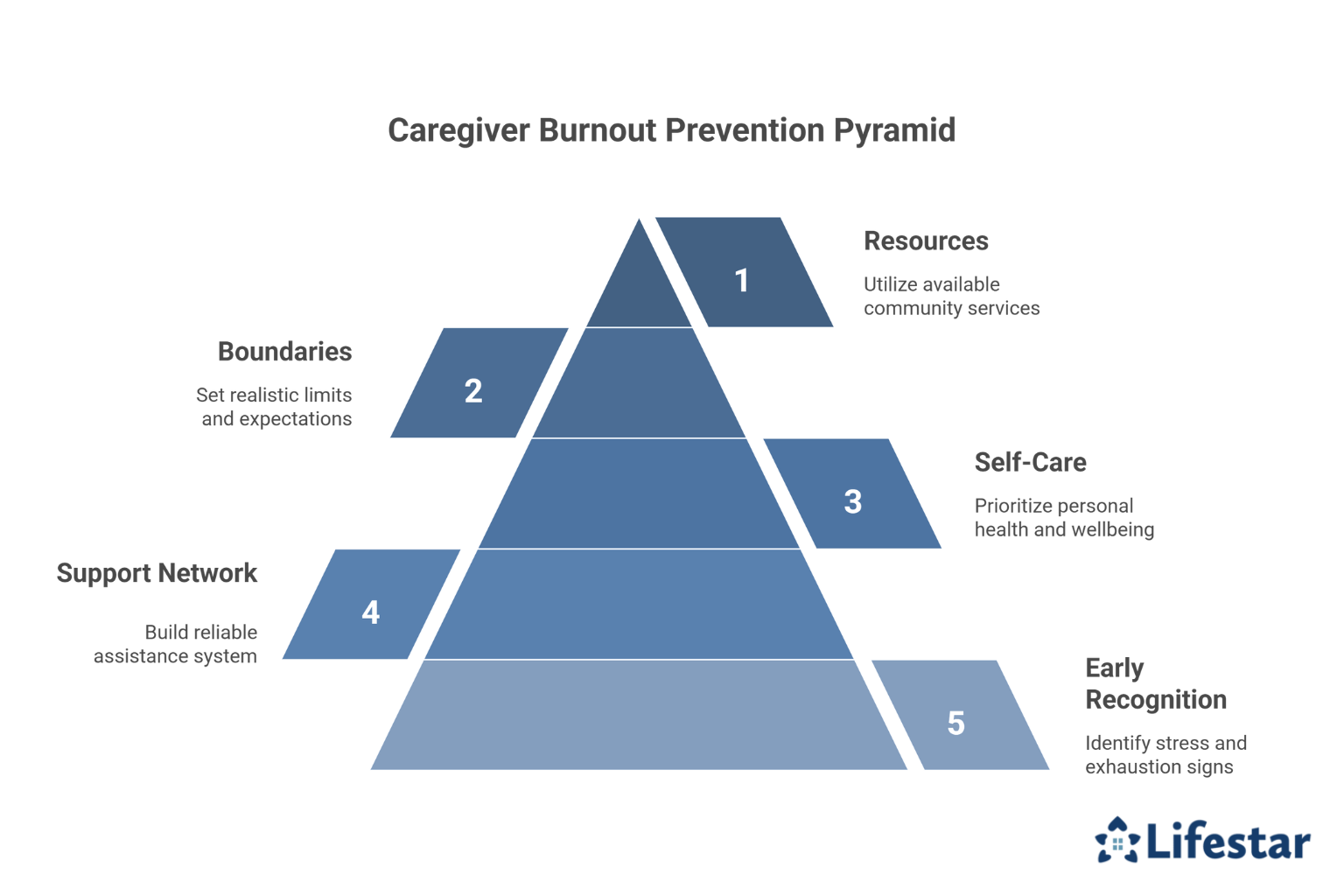
Table of Content
Caring for a senior loved one can be deeply rewarding, but it often comes with physical, emotional, and mental challenges that can lead to caregiver burnout. This exhaustion affects millions of family caregivers who sacrifice their own wellbeing while providing essential support to others. Fortunately, understanding the Benefits of senior home care can help families share responsibilities more effectively while implementing practical strategies to protect their own health and continue providing high-quality care.
Recognize the Warning Signs Early
Caregiver burnout doesn’t happen overnight. It develops gradually through a combination of stress, exhaustion, and neglect of your own needs. By identifying these warning signs, you can take action before reaching a crisis point:
- Physical symptoms like chronic fatigue, frequent headaches, or getting sick more often
- Emotional changes such as increased irritability, anxiety, or feeling overwhelmed
- Social withdrawal from friends, family, or activities you once enjoyed
- Sleep disturbances, including insomnia or sleeping too much
- Difficulty concentrating or making decisions
- Feelings of resentment toward your loved one
If you notice several of these symptoms persisting for more than a few weeks, it’s time to implement burnout prevention strategies.
Family caregivers don’t have to risk their own wellbeing to make sure their loved ones continue to receive high-quality care. Whether you need respite from your caregiving duties or your aging loved one needs more extensive home care, Oklahoma City Lifestar Home Care can meet your family’s care needs. Our dedicated caregivers are available around the clock to provide transportation to doctor’s appointments, ensure seniors take their prescribed medications, and help with a variety of tasks in and outside the home.

Build a Strong Support Network
No caregiver should handle everything alone. Creating a reliable support system is essential for long-term sustainability:
- Family and friends – Don’t hesitate to ask for help with specific tasks like grocery shopping, meal preparation, or sitting with your loved one while you take a break. Many people want to help but don’t know how.
- Support groups – Connect with other caregivers through local support groups or online communities. Sharing experiences with people who understand your situation can provide emotional relief and practical advice.
- Healthcare team – Maintain open communication with doctors, nurses, and social workers involved in your loved one’s care. They can offer resources and suggest services you might not know about.
- Professional support – Consider hiring home caregivers, adult day care services, or respite care providers. These professionals can give you scheduled breaks while ensuring your loved one receives high-quality care.
Practice Self-Care without Guilt
Many caregivers feel guilty about taking time for themselves, but self-care is crucial. You cannot pour from an empty cup, and maintaining your own health benefits both you and your loved one.
- Schedule regular medical checkups and don’t skip appointments.
- Maintain a nutritious diet and stay hydrated throughout the day.
- Exercise regularly, even if it’s just a 10-minute walk around the block.
- Practice stress-reduction techniques like deep breathing, meditation, or yoga.
- Pursue hobbies or activities that bring you joy, even for short periods.
- Get adequate sleep by establishing a consistent bedtime routine.
Remember that taking breaks and caring for yourself makes you a better caregiver, not a selfish one.
Establish Realistic Boundaries and Expectations
Setting healthy boundaries protects your wellbeing and creates a more sustainable caregiving arrangement:
- Time boundaries – Designate specific times for caregiving tasks and personal time. Communicate these boundaries clearly to family members and stick to them consistently.
- Task boundaries – You don’t have to do everything yourself. Delegate responsibilities to other family members, friends, or professional services based on your capacity and their availability.
- Emotional boundaries – While empathy is important, avoid absorbing all of your loved one’s emotions and frustrations. Your loved one’s feelings are valid, but you don’t need to carry that emotional weight constantly.
- Realistic expectations – Accept that you cannot control every aspect of your loved one’s condition or happiness. Focus on what you can influence and let go of what you cannot change.
If you need assistance caring for your loved one, consider hiring a professional caregiver. Live-in care professionals can be a wonderful boon to seniors. Whether they require around-the-clock supervision or just need assistance with exercise and household tasks a few days a week, seniors can enjoy a higher quality of life with the help of trusted in-home caregivers.
Utilize Available Resources and Services
Many caregivers aren’t aware of the resources available to help them. Research and take advantage of these options:
- Contact your local Area Agency on Aging for information about services in your community.
- Explore adult day programs that offer social activities and supervision.
- Investigate transportation services for medical appointments.
- Check if your loved one qualifies for Medicare or Medicaid benefits.
- Consider meal delivery services or grocery pickup options.
- Use technology like medication reminders, emergency alert systems, or video calling to make caregiving more manageable.
- Look into respite care programs that provide temporary relief.
Don’t let pride or lack of information prevent you from accessing help that could significantly reduce your stress and workload.
In Oklahoma City, respite care is a great help to many families. Caring for a senior loved one can be overwhelming at times, which puts family caregivers at risk for burnout. However, an in-home caregiver can take over your loved one’s care, allowing you the time you need to focus on your own health, maintain a full-time job, or care for other members of your family. For compassionate, reliable in-home care, trust the experienced professionals from Lifestar Home Care. Reach out to one of our dedicated Care Managers today to learn about the high quality of our in-home care services.